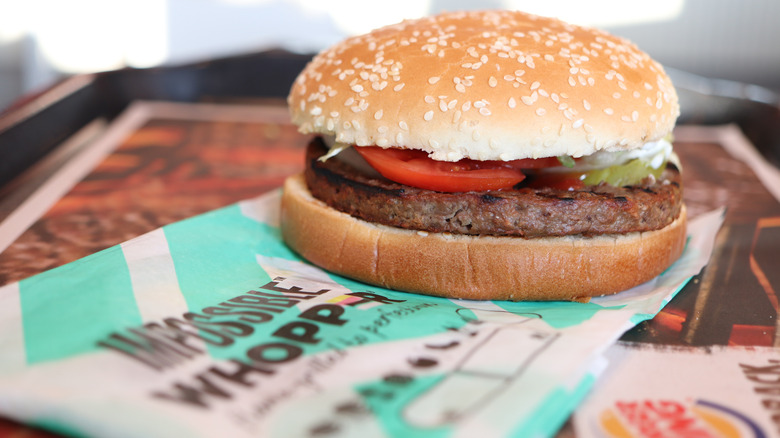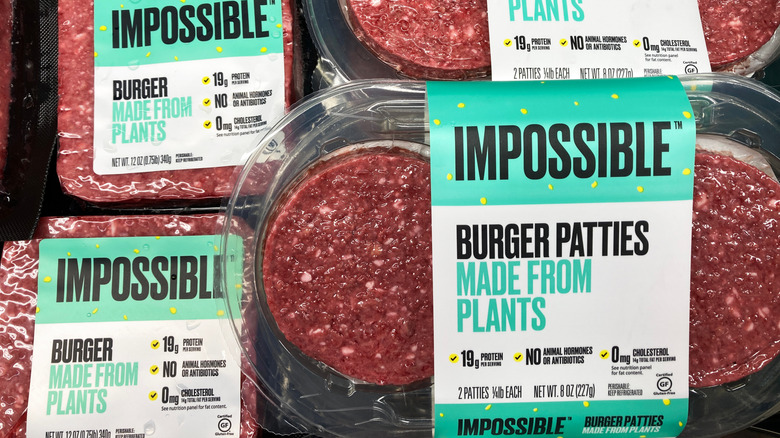What Is The Impossible Whopper Made Of?
An all-time staple of American cuisine, sold billions of times each year, the Whopper is the signature sandwich that built Burger King. But in 2019, BK rolled out a plant-based alternative to its iconic best-seller as an option for those who love the timeless classic but would rather pass on the meat. The Impossible Whopper comes by virtue of a nearly decade-long partnership between Burger King and Impossible Foods, a brand that's taken the vegan movement to new heights by making plant-based foods that taste more like real beef.
The company is the force behind the Impossible Burger sold in grocery stores. Its frozen patties are essentially the same as Burger King's meatless Whopper, although Impossible Foods rounds the square-brick packages seen in stores and reshapes them to better fit the Whopper's mold. Impossible Burgers are designed to smell, taste and mimic the texture of the all-American beef classic, down to the red "blood" that drips out when you cut the patties.
The Impossible Whopper is dressed with the traditional fare of — as the old song goes — mayo, sliced tomatoes and onions, lettuce, pickles, and ketchup all heaped on a sesame seed bun. For those who don't want their plant-based patties cooked on the same flame-broiled grill the original Whoppers are made on, you can ask to have yours heated in the microwave. Vegans can also get their Impossible Whoppers sans mayo, which contains the animal-sourced ingredient eggs.
Beyond the bun: Making the impossible possible
BK advertises its Impossible sandwich as "100% Whopper, 0% Beef" with no animal fats. So how do they do it? The main ingredients are water, coconut oil, sunflower oil, as well as soy and potato proteins. The key ingredient is heme, an iron source that gives the patties their meaty taste and makes them bleed out. The heme in the Impossible Burger is not naturally produced; it's made by mixing soy and genetically engineered yeast to create leghemoglobin.
When Impossible Foods first pitched the idea of a veggie patty to Burger King, their original version crumbled over the open flame, the company's founding CEO Pat Brown told Business Insider in 2019. So Impossible went back to the cooking board and replaced the wheat protein in its recipe with the genetically modified soy compound. The switch got the burger over the finish line and made a big splash for the restaurant chain.
Nutritionally, the vegetable Whopper has just about the same protein content as an 80% quarter-pound ground beef patty, with significantly less fat and calories. On the flip side, Impossible Whoppers contain about nine grams of carbs, whereas real beef is carb-free, and the sodium levels are about five times higher in the plant-based alternative. But the meatless burger is filled with fiber, zinc and a host of essential vitamin B nutrients like cobalamin, folate, thiamine, riboflavin, and niacin.

